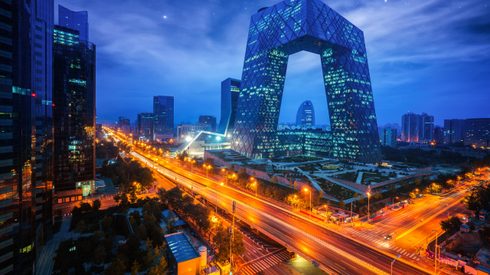Speaking at the keynote panel discussion hosted by Fastmarkets chief executive officer Raju Daswani, the panelists agreed that there were no signs of a downturn in the GCC countries and that the coming years will be a golden age for the region.
Ravi Singh, chief executive officer of steelmaker SULB Bahrain & Kingdom of Saudi Arabia, told delegates the wide range of projects across the region clearly indicates that unlike Europe and the United States there is no threat of recession in the region.
He said those projects will have a huge positive influence on the economies in the region and especially in Saudi Arabia, where the “Vision 2030” project aims to transform the kingdom into a modern economy.
And Hassan Salim Shashaa, chief strategy & transformation officer at Emirates Steel Arkan told delegates that “the next 15 years will represent a “golden age of steel” in the arab world.
“I believe steel in the GCC is in perfect position and the best is yet to come’” Shashaa said.
One of Saudi Arabia’s key Vision 2030 aims is to make the country the epicenter of the global minerals and mining sector.
Saudi Arabia announced three new steel production projects in 2021 and 2022.
Marwan Almojil, executive commercial general manager at Saudi Basic Industries Corp (Sabic) told delegates that, thanks to high oil prices, the Ministry of Finance was able to announce a 102 billion riyals ($27 billion) fiscal surplus for 2022 – which equates to about 2.6% of Saudi Arabia`s gross domestic product (GDP).
But all GCC governments will be focusing on reducing their dependency on oil by diversifying their economic activity and Almojil said that, while he expects Saudi Arabia to have surplus in 2023 as well, this will be partly due to non-oil revenues.
He said, non-oil revenues have been growing rapidly and accounted for more than 30% of Saudi Arabia`s fiscal budget for 2022, having been less than 10% before 2013, so the the impact of oil prices on the region`s economies will be reduced due to the new projects and diversification.
Vision 2030 also aims to increase in the private sector’s share of the country’s economy to 65% from 40%.
Decarbonization targets
Steel production in the GCC nations is mainly produced through the direct-reduced iron (DRI) route, with the region benefiting from plentiful gas resources and having an advantage in terms of the potential for solar power due to its geographical location.
Saudi Arabia expects to reach zero carbon emissions by 2060, and Sabic has a carbon neutrality target of 2050, according to Almojil.
Pelletising and DRI production capacities are expected to increase in the GCC for green steel production targets and the new capacities already announced in the region are all integrated mills, Shashaa said.
The most recent green steel plant investment was announced by Jindal Shadeed, a long steel producer in Oman.
Emirates Steel Arkan recently stressed the importance of decarbonization of the steel sector in an interview with Fastmarkets, having already announced its intention to start hot-rolled coil production back in 2021.
Emirates Steel Arkan also had talks with Japanese entities Itochu and JFE Steel, a subsidiary of JFE Holdings, about the potential for a ferrous raw materials production facility in Abu Dhabi.
Some GCC steelmakers already have plans to use hydrogen for steel production.
And in November, Brazilian iron ore miner Vale announced plans to build green briquette mega hubs in the Middle East, promoting the use of hydrogen.
But at the moment, steel producers in the GCC region use either iron ore or scrap for steel production, Singh said, with both having an advantage in terms of raw materials availability. And he said that using hydrogen for steelmaking would actually increase costs, so its use for steelmaking will only increase when buyers are ready to pay extra.
Shashaa agreed and said the use of hydrogen for steelmaking will only happen when it becomes commercially viable because it increases the cost of steel production by $150-200 per tonne at the moment.
“Personally, I do not think hydrogen will become common in steel production in the next five years. When costs fall, it may become more common. I expect a gradual transition to hydrogen,” he said.
Challenges
Despite the positive expectations for the region, the panelists accepted there are challenges for the steel sector.
The GCC is a net exporter of long steel by 2022, but, “to continue exporting, you need to focus on cost efficiency and differentiating products,” Almojil said.
“Other than traditional [products], value-added products need to be produced. That is the challenge we need to focus on,” he added.
Another challenge, Shashaa said, was that the economies in the GCC region are going through some fundamental changes.
“[The GCC] is no longer dependent mainly on government expenditure [and] we see a more active role for the private sector. The biggest threat to this is anything that could steal the confidence,” he said.






